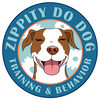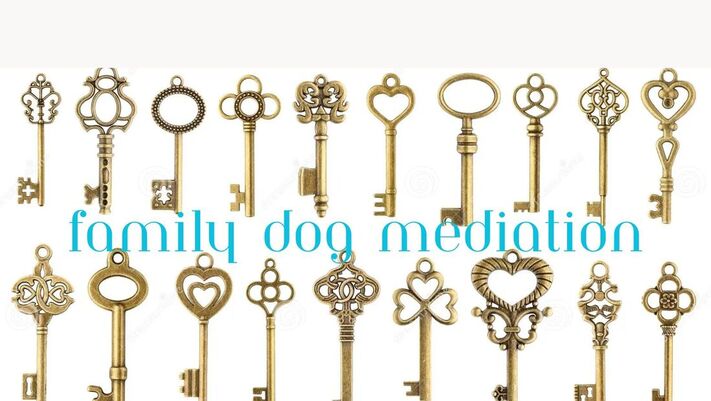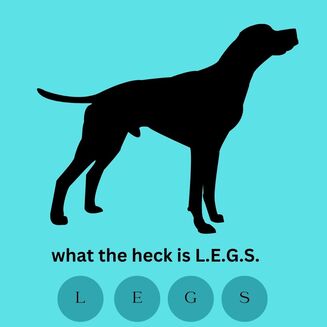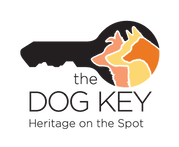What is a Family Dog Mediator?®
A Family Dog Mediator or (FDM) is an individual with specialized training and education that reaches beyond exclusively manners and obedience training or behavior consulting.
Family Dog Mediation is an initiative intended to increase a dog owners understanding about the needs of their dog(s) by combining science backed training solutions and creative practical solutions. As a Family Dog Mediator I will introduce you to your dog and help you to understand who they are and why they do what they do.
Family Dog Mediators evaluate the dog’s L.E.G.S (see below for a more detailed explaination) and help mediate the places in the dog's life, and in their life with you, where there are conflicts between you both in your relationship. We help you manage your expectations for your dog’s behavior, help translate what your dog actually needs from you in terms of teaching and support, and help you meet those needs through education and coaching. We also help you by giving you the tools you need to modify your dog's behavior so that you can live a more harmonious life together. We focus on "connection" to resolve conflicts, build confidence and create a cooperative partnership between you and your dog.
What is Family Dog Mediation?®
A Family Dog Mediator assesses each dog based on their L.E.G.S. This acronym represents four pillars for the assessment which includes a dog’s:
Learning experiences (past and present)
Environment (past and current)
Genetics (DNA history and what is genetically programmed into your dog) and the
Self–who is your dog on the inside at this exact moment; what is the age, health, and reproductive status, as well as current living situation?
Each of these four pillars alone represent one quarter in the L.E.G.S. of your dog; separately they may not mean much, but together all four play a critical role in your dog’s development and behavior.
A Family Dog Mediator or (FDM) is an individual with specialized training and education that reaches beyond exclusively manners and obedience training or behavior consulting.
Family Dog Mediation is an initiative intended to increase a dog owners understanding about the needs of their dog(s) by combining science backed training solutions and creative practical solutions. As a Family Dog Mediator I will introduce you to your dog and help you to understand who they are and why they do what they do.
Family Dog Mediators evaluate the dog’s L.E.G.S (see below for a more detailed explaination) and help mediate the places in the dog's life, and in their life with you, where there are conflicts between you both in your relationship. We help you manage your expectations for your dog’s behavior, help translate what your dog actually needs from you in terms of teaching and support, and help you meet those needs through education and coaching. We also help you by giving you the tools you need to modify your dog's behavior so that you can live a more harmonious life together. We focus on "connection" to resolve conflicts, build confidence and create a cooperative partnership between you and your dog.
What is Family Dog Mediation?®
A Family Dog Mediator assesses each dog based on their L.E.G.S. This acronym represents four pillars for the assessment which includes a dog’s:
Learning experiences (past and present)
Environment (past and current)
Genetics (DNA history and what is genetically programmed into your dog) and the
Self–who is your dog on the inside at this exact moment; what is the age, health, and reproductive status, as well as current living situation?
Each of these four pillars alone represent one quarter in the L.E.G.S. of your dog; separately they may not mean much, but together all four play a critical role in your dog’s development and behavior.
unlock the "why"
|
Learning: Your dog is always learning whether you’re intentionally teaching them a new skill, they’re engaging with the environment learning on their own, or passively learning by observation. The world around your dog is his teacher and your dog is always taking notes. Even when you are bustling around your home doing your own thing, it is likely that your dog is a captivated audience, observing everything you do; learning your routines, and learning who your friends are. They learn that when you grab your keys you might be leaving, when you grab the leash it might mean a walk, or when you forget to close the bathroom door it may mean an opportunity to raid the litter box...you get the idea. Learning is not all about good manners “training”, it is as much about the opportunities provided everyday that teach your dog, and/or how past trauma has taught your dog, as it is anything else. Environment – Environment, is essentially everything that your dog experiences in their external world day-to-day (as well as in their past). The environment encompasses what they are they experiencing in the current environment and what have they experienced in the past? What kind of social environment does the dog have, do they live with other pets and people? Are those relationships safe and predicatable? Are there triggers in the environment that set the stage for certain behavioral responses? How much agency does the dog have in their day-to-day life? How have they learned to cope in their environment if it is in direct conflict with their genecically programs needs? Genetics – If you have ever completed a DNA test for your dog you will likely remember they provide you with a family tree of sorts. We look at this to the extent that is may be influencing your dog's behaviors; and often those behaviors are perfectly normal and naturally scripted in your dog's DNA? Often what is genetically programed by your dog's genetics, results in unmet needs and manifest as behaviroal issues, especially when they're instincts aren't well matched to their environment. In other cases some of your dog'snatural behaviors might be misread improperly managed or simply misunderstood. If you are interested in taking a lcoser look at your dog's DNA there are good options like Embark or Wisdom. You can also try Unlock your dog's heritage with The Dog Key™ to discover which genetic breed group(s) your dog has in his family history so you can be better prepared for what his genes might bring to the table. Self – considers the dog sitting directly in front of us, not the dog you had previously, but the dog you live with today. We look at what the dog's internal conditions are and how his or her age or development may explain or be influencing behavior. What is the dog experiencing as an individual? What kinds of internal conditions could be affecting his behavior? What is their age? have they or are they experiencing medical or physical issues as a result of surgery or injury? Do they have a disability, is it debilitaing, progressive or temporary? Many “behavior problems” are really medical issues (infection, desease, chronic pain, etc.) and can be the cause of behavior changes in our dogs. We need to get the whole story and this includes examinations and testing. Talk to your vet regarding any concerning behavior changes right away! |








